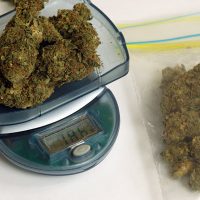Federal Agency Recommends Changing Cannabis From A Schedule I To A Schedule III Controlled Substance

There are plenty of terrifying drugs out there, but suboxone is not one of them. Suboxone is the drug of choice in medication-assisted therapy for opioid use disorder. It makes it possible for people living with opioid use disorder to administer their own medication, just like people living with clinical depression administer their own Prozac and people living with insulin-dependent diabetes administer their own insulin. Ketamine isn’t all that scary, either. Say what you will about the “ketamine chic” aesthetic of the teens with the unkempt hair and the Minions T-shirts, but some psychiatrists believe that ketamine can help manage several mental illnesses at least as well as the current standard treatments do. Cannabis is not scary, either; in fact, it is ubiquitous in Florida; the smell of weed blends seamlessly with the swamp stench or ocean breeze everywhere you go. Despite this, suboxone and ketamine are Schedule III controlled substances, meaning that doctors can use them in medical settings according to their professional judgment, but cannabis is a Schedule I controlled substance, which means that it is always illegal under federal law. The events of the past week could lead to a relaxation of the strict federal laws against cannabis, but the change will not affect your current criminal case anytime in the near future. If you are facing charges for illegal possession of a controlled substance, contact a Tampa drug crime lawyer.
What Would Change If Cannabis Were Schedule III Instead of Schedule I?
Last month, the Department of Health and Human Services submitted a recommendation to the Drug Enforcement Agency to change cannabis from a Schedule I to a Schedule III controlled substance. If the DEA implements the recommendation and reclassifies cannabis as Schedule III, some cannabis-related laws will change, but some will not.
Florida and many other states have issued licenses for businesses to sell cannabis, and numerous consumers have bought cannabis products for medical or recreational use, and the fact that they were violating federal law did not bother them in the least. None of this will change if cannabis becomes Schedule III, and neither will the local ordinances that decriminalize cannabis possession. What will change is that research labs will be able to conduct clinical trials on therapies involving cannabis, as they can with other Schedule III drugs. The biggest changes, however, are those that will affect businesses that sell cannabis products. Under the current system, cannabis dispensaries cannot claim tax deductions for business expenses, and banks can lend to them at prohibitively expensive interest rates. If cannabis becomes a Schedule III controlled substance, cannabis businesses will have access to the same tax deductions and the same business loans as other taxes.
Contact Tampa Criminal Defense Attorney Bryant Scriven
A criminal defense lawyer can help you if you are being accused of possession of drugs that are more illegal than they should be. Contact Scriven Law in Tampa, Florida to schedule a consultation.
Sources:
forbes.com/sites/kriskrane/2023/08/31/hhs-call-to-reschedule-marijuana-is-a-big-deal-heres-why/?sh=705a88722a4a
marijuanamoment.net/federal-marijuana-rescheduling-is-just-a-step-on-the-path-to-legalization-congressional-lawmakers-say/

